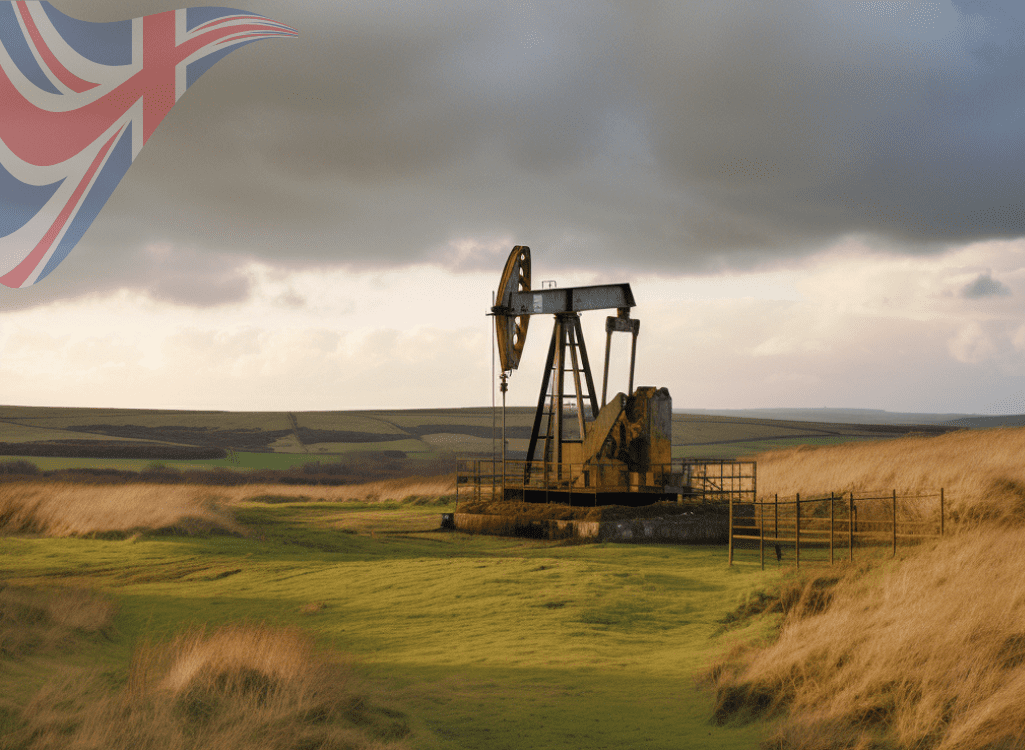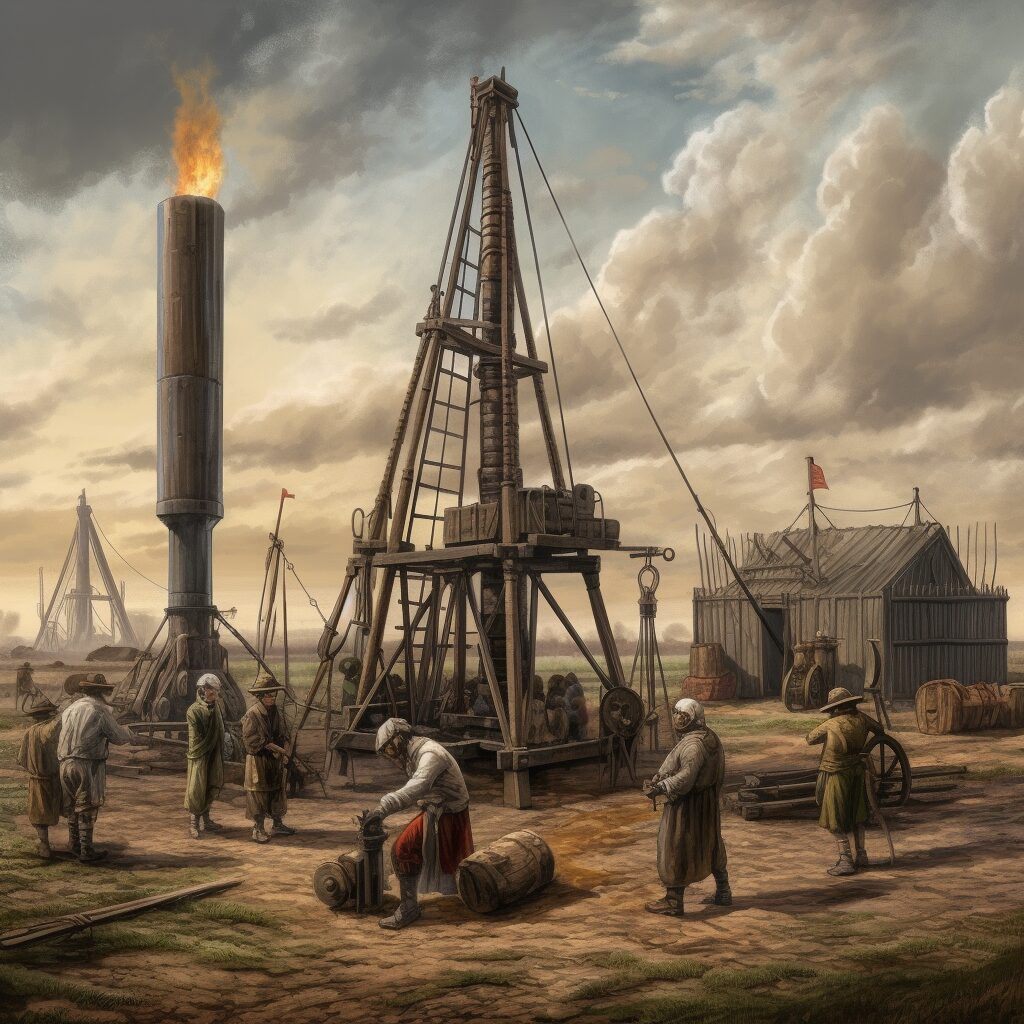The UK Oil Industry: A Comprehensive Guide
Explore the fascinating world of the UK oil industry in this comprehensive article. Discover its history, economic impact, and environmental concerns while also examining the challenges and opportunities it faces in the ongoing energy transition.
Be captivated by expert insights, data-driven analysis, and practical recommendations as you uncover the intricacies of this vital sector. Dive into this engaging and informative piece to gain a deeper understanding of the UK’s oil industry and its future.

Introduction to the UK oil industry
Have you ever wondered how the UK’s oil industry operates and its significance in today’s energy landscape? Look no further! This article will serve as your ultimate guide, providing a comprehensive understanding of the UK’s oil industry, its history, and its relevance in the ongoing global energy transition.
Background and Context
A Brief History of the Oil Industry in the UK
In the late 1960s, the discovery of North Sea oil transformed the UK’s energy sector, turning the nation into a major oil producer. Let’s take a walk down memory lane and explore the development and production timeline of the oil industry in the UK:
- 1969: The first significant oil discovery in the North Sea
- 1975: First oil production from the Argyll field
- 1980s: The North Sea becomes one of the world’s leading oil-producing regions
- 1999: UK oil production peaks
- 2000s: Production declines due to maturing fields
- 2010s: Focus shifts towards decommissioning and the energy transition

Key Concepts and Terminology
To better understand the UK’s oil industry, let’s familiarize ourselves with a few essential terms:
- Exploration and production (E&P): The process of locating and extracting hydrocarbons
- Offshore platforms and rigs: Structures used to drill and produce oil in offshore fields
- Supply chain and refining: The process of turning crude oil into usable products such as gasoline, diesel, and jet fuel
Recent Developments and Trends
As global efforts to combat climate change intensify, the UK’s oil industry faces new challenges and opportunities. Key trends impacting the sector include:
- The shift towards renewable energy
- Decommissioning of oil platforms
- Evolving government policies and regulations

Main Sections
Exploration and Production
Technologies and Methods
The UK’s oil industry employs cutting-edge technology to explore and extract oil from the North Sea. Some of these methods include:
- 3D and 4D seismic imaging
- Advanced drilling techniques
- Enhanced oil recovery (EOR) methods, such as gas injection and chemical flooding
Major Oil Fields in the UK
The UK’s oil industry is primarily concentrated in the North Sea, with several major oil fields, including:
- Forties
- Brent
- Clair
- Buzzard
Current Production Levels and Future Projections
As of 2021, the UK produced approximately 1 million barrels of oil per day. However, production is expected to decline in the coming decades as fields mature and the nation focuses on renewable energy sources.
Economic Impact
The oil industry has been a significant contributor to the UK’s economy over the past five decades. Key economic impacts include:
- GDP Contribution: The industry contributed around £10.6 billion to the UK’s GDP in 2019.
- Employment: Over 150,000 jobs are supported by the oil and gas sector.
- Regional Development: The industry has spurred growth in regions such as Aberdeen and the Shetland Islands.
Environmental Concerns
Despite its economic benefits, the UK’s oil industry has faced criticism for its environmental impact. Key concerns include:
- Marine ecosystem disruption: Offshore drilling can disturb marine life and alter habitats.
- Greenhouse gas emissions: The combustion of fossil fuels contributes to climate change.
- Oil spills and pollution: Accidents can lead to devastating environmental consequences.
UK’s Energy Transition
As the UK works towards achieving net-zero emissions by 2050, the oil industry must adapt and play a role in the energy transition. Key aspects of this transition include:
- Government Policies: The UK government has introduced policies to support the transition to renewable energy, such as offshore wind expansion and carbon capture initiatives.
- Role of the Oil Industry: The industry can contribute to the transition by investing in low-carbon technologies, repurposing infrastructure, and supporting workforce retraining.
- Challenges and Opportunities: While the energy transition poses risks to the oil industry, it also offers opportunities for growth in new sectors, such as hydrogen production and carbon capture.
Comparative Analysis
Comparison with Other Major Oil-Producing Countries
When examining the UK’s oil industry, it’s helpful to compare it with other major oil-producing nations:
- Production Levels and Reserves: The UK ranks as the 19th largest oil producer globally, with reserves estimated at 2.5 billion barrels in 2021.
- Regulations and Environmental Policies: Compared to some other oil-producing countries, the UK has stringent environmental regulations and ambitious climate targets.
- Strategies for Energy Transition: The UK is a global leader in the transition to renewable energy, with significant investments in wind power and emerging technologies like tidal energy.
Strengths and Weaknesses of Different Approaches
Each country’s approach to the oil industry and energy transition has its pros and cons. For the UK, strengths include strong regulatory frameworks and a proactive approach to the energy transition. However, weaknesses include reliance on declining North Sea reserves and potential job losses in the traditional oil and gas sector.

Expert Insights and Data
Data-driven analysis is also critical in understanding the industry’s trends and impacts. For instance:
- UK oil production peaked in 1999 at around 2.9 million barrels per day
- The sector’s direct greenhouse gas emissions have decreased by 19% since 2014
Practical Applications and Recommendations
To navigate the UK’s oil industry and the energy transition, consider the following recommendations:
- Explore investment opportunities in emerging low-carbon technologies.
- Encourage innovation in oil industry technologies to reduce environmental impact.
- Foster collaboration between the oil and renewable energy sectors to achieve net-zero targets.
Challenges such as regulatory barriers, market fluctuations, and public opposition must be addressed to ensure a successful transition. By adopting proactive strategies and engaging in open dialogue, the UK’s oil industry can continue to evolve and contribute to a more sustainable energy future.

Conclusion
In conclusion, the UK’s oil industry has played a significant role in the nation’s economy and energy landscape. As we move towards a net-zero future, the industry must adapt and embrace new opportunities in the energy transition. By understanding the history, challenges, and potential of the UK’s oil sector, we can appreciate its ongoing relevance and contribution to a cleaner, greener world. So, are you ready to explore the exciting changes and opportunities that lie ahead for the UK’s oil industry and the global energy transition?







